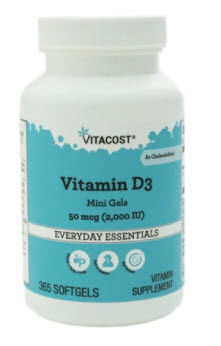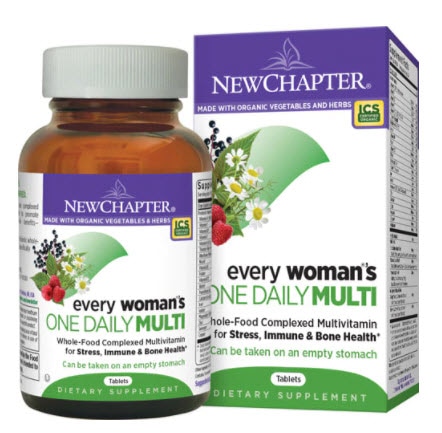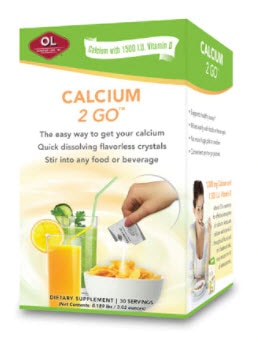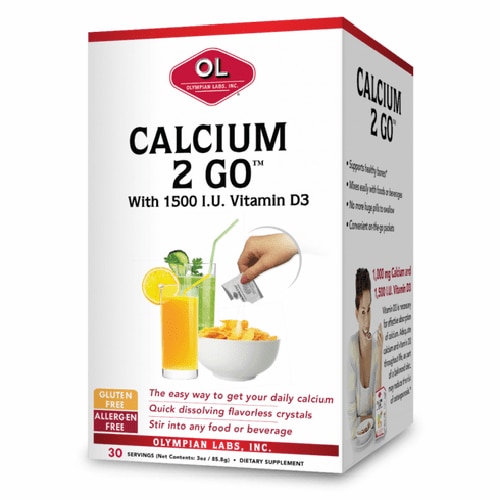According to data from the Nutrition Business Journal, the global supplement industry is worth approximately $128 billion—and that number is growing rapidly. Health has become the new wealth, and people around the planet are turning to vitamins, minerals and herbs to bolster their wellness and feel their best.
If you are one of the many who regularly turns to
nutritional supplements, you may find yourself pausing before consuming them to ask yourself,
is now the best time to take this?

While most of your nutrients should be received through food, it’s a wise question to ask, as you should always take supplements at a time that will promote optimal absorption.
With this in mind, we’ve put together a few hints on timing so that you can reap the most benefits from the supplements you’ve chosen.
When to take vitamins?
As
The Washington Post puts it, “There is debate about whether taking your vitamins in the morning or at night is best. The theory goes that because you’re getting nutrients throughout the day from food, having your nutrition supplements at night helps your body get some nutrition as you sleep.”
Controversy aside, it wholly depends on the type of nutritional supplement you’re taking.
B vitamins, for example, should be taken in the morning, as they naturally encourage brain function and more energy, which may prevent you from getting a good night’s sleep. (What’s more, studies show that
B vitamins may disrupt sleep and lead to vivid dreams.) A number of vitamins fall under the
B vitamin umbrella, including thiamine, riboflavin, pantothenic acid, folic acid and biotin.
Water-soluble vitamins, such as
vitamin C and niacin, are not naturally produced in the human body; as such, they need to be ingested through food or a nutritional supplement. Countless experts agree that they’re best absorbed best on an empty stomach—meaning, they should be taken first thing in the morning, before you’ve eaten breakfast, or two hours after a meal.
Fat-soluble vitamins, on the other hand, which are dissolved in the body using fats and include
vitamins D, A, K, and E, are maximized when they’re consumed with a small amount of fat (roughly 5g), such as olive oil or avocado. (In other words, time your fat-soluble vitamins with one of your meals or snacks.)
Meanwhile, it’s generally agreed that
prenatal vitamins are best absorbed—and trigger the least amount of risk—when they’re taken after breakfast or lunch. Why? Consuming prenatal vitamins on an empty stomach may result in indigestion, nausea, and other intestinal distress.
Minerals, such as zinc, should be taken with food to avoid an upset stomach. That said, experts recommend taking magnesium before bed. Not only does this megastar mineral organically encourage better sleep, but it can also induce sleepiness. On the other hand,
iron, which plays a crucial role in energy production, neurological health and immune function, is ideally absorbed on an empty stomach; further, it cannot be properly absorbed if you’ve recently eaten dairy or had caffeine. What
does improve iron absorption? Taking it with Vitamin C or orange juice. And
calcium, an essential nutrient for your bones and nervous system, should be taken in divided doses a few times per day, as the human cannot take in more than it requires at any one time, so consuming smaller doses, rather than one large dose, is more effective.
If you’ve been advised or have chosen to take
fiber, take it separately from other supplements, as it can intervene with their absorption. Your best bet? Taking fiber mid-afternoon. With its satiating effects, it may make you less inclined to reach for those pita chips as a pre-dinner snack.
Omega 3s, however—such as fish oil—go down with much more ease when taken before a meal, as fish oil in particular may prompt belching. Food can mitigate the chances of this happening.
If you’ve (smartly) jumped on the
probiotics bandwagon—a supplement that possesses dozens of health benefits, from naturally supporting digestion and immune health—do know that
when you should take them depends entirely on the product you’ve chosen. Some are best taken with a meal; others without food. Be sure to read the label of the probiotics you’ve purchased, and time them accordingly.
Lastly, if you take a
multivitamin to fill in any gaps in your diet—multivitamins typically help you reach as close to 100% of your RDA as possible—do so with breakfast, as multivitamins on an empty tummy may cause stomach upset.
A few other things to keep in mind:
While vitamins, minerals, herbs and more may be “natural,” you should nonetheless
discuss supplementing with your doctor before starting. Some supplements may hamper the efficacy of certain medications—or lead to unpleasant side effects—while the necessity of some supplements require a blood test.
Whatever nutritional supplement you’ve decided to take, ensure that it’s a quality product—one that is made within the U.S., does not contain harmful fillers, and has received a stamp of approval from the GMP (Good Manufacturing Practices).
Bottom line
All of the above being said, do note that there is no scientific evidence that suggests an optimal time for taking all of your all of your nutritional supplements—what we know, so far, is that the specific times outlined above may reduce the chances of experiencing adverse effects
and improve absorption. Rather, like all good habits in life, consistency with your supplements is key.
Featured products:



 While most of your nutrients should be received through food, it’s a wise question to ask, as you should always take supplements at a time that will promote optimal absorption.
With this in mind, we’ve put together a few hints on timing so that you can reap the most benefits from the supplements you’ve chosen.
While most of your nutrients should be received through food, it’s a wise question to ask, as you should always take supplements at a time that will promote optimal absorption.
With this in mind, we’ve put together a few hints on timing so that you can reap the most benefits from the supplements you’ve chosen.






